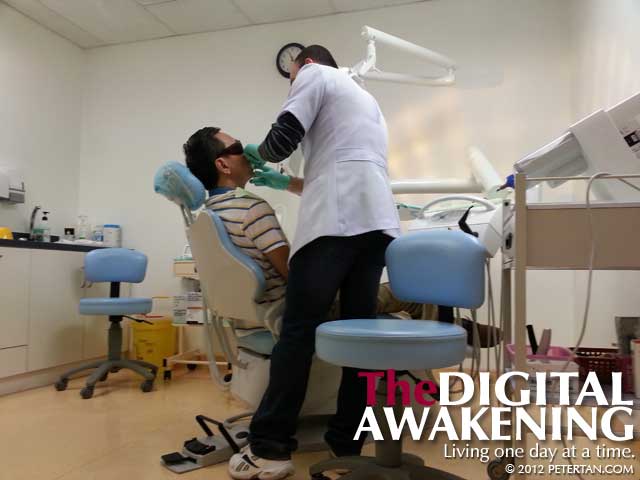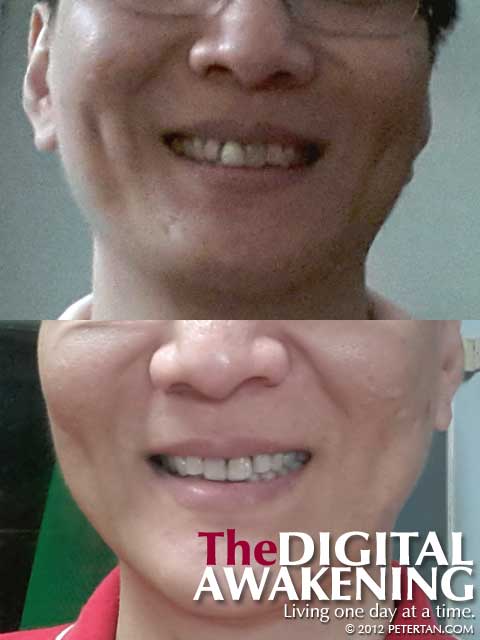Back in 1981, while kicking around a bottle cap with my schoolmates during recess, I fell flat on my face and caused a hairline fracture on one of my front tooth. My gums swelled and got infected. The dentist made in incision to drain the pus and recommended root canal treatment for both front teeth. The colour of the tooth with the hairline fracture turned progressively darker. One night, about eight years after that accident, it broke off totally.
The dentist at the Lam Wah Ee Hospital suggested a dental crown instead of dentures as my other teeth were in good condition. She charged a very nominal amount for the post, crown and materials only. The crown served me well. I had no problem eating with it and could enjoy corn on the cob and even chewing on sugar canes.

Dr. Ammar Musawi working on my crown at the Dental Clinic of the International Medical University in Bukit Jalil.
Over the years, while my natural teeth became a few shades yellower, the crown’s colour remained bright and unchanged. This discolouration is due to ageing and maybe from the occasional coffee, tea or cola that I indulged in. My gum had also receded, exposing some of the original discoloured tooth. Call me vain but I was very conscious of how it looked each time I smiled. I had wanted to get it fixed for the longest time.
As fate would have it, I got acquainted with Dr. Ammar Musawi of the International Medical University (IMU) Dental Faculty. He was looking for information on the distribution of disabled people in Malaysia for a project that he was working on. During one of our online conversations, I took the opportunity to consult him on replacing the crown with one that could make my smile more aesthetically pleasing.

Before and after dental crown replacement.
As I could not see him at the clinic on weekdays, he had kindly agreed to see me on Saturdays, first to take a dental impression and then to fit the replacement crown. I have a problem with stretching out on a dental chair – my legs would go into spasms. Each time the spasms struck, he would stop and let me get comfortable again before he continued. He also let me sit in upright position which helped in reducing spasms.
I could not be any happier when I held up the mirror and saw the result in the reflection. The colour matched perfectly. If I did not know any better, I would say that it is my natural tooth. Thank you, Dr. Ammar, for the excellent dental work. After so many years of muted grins, I now can smile again without being self-conscious.
